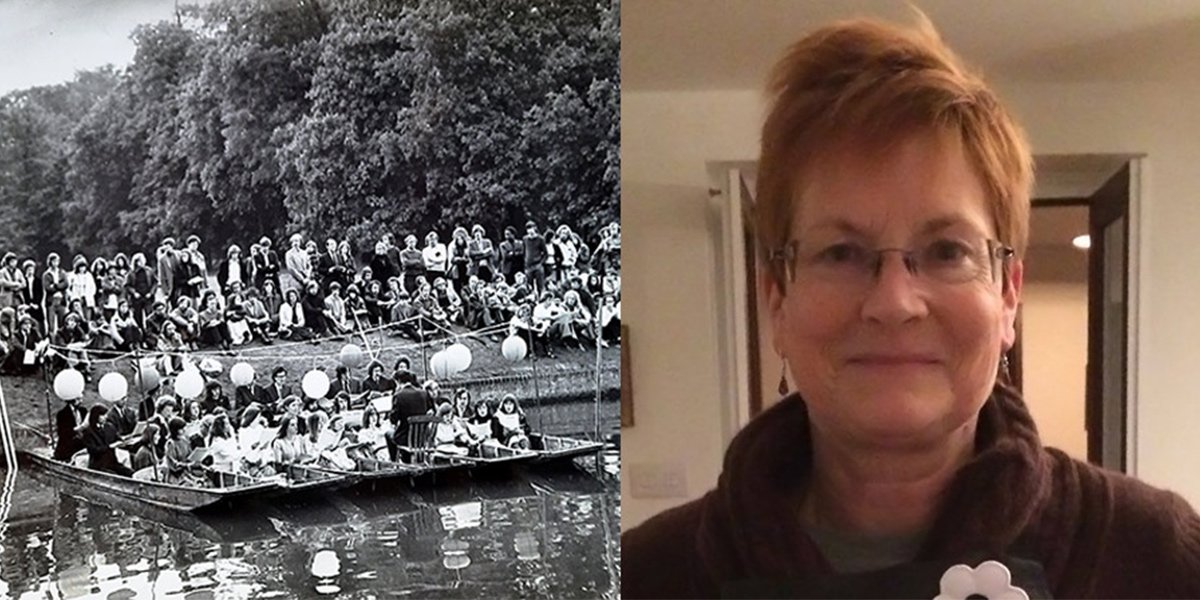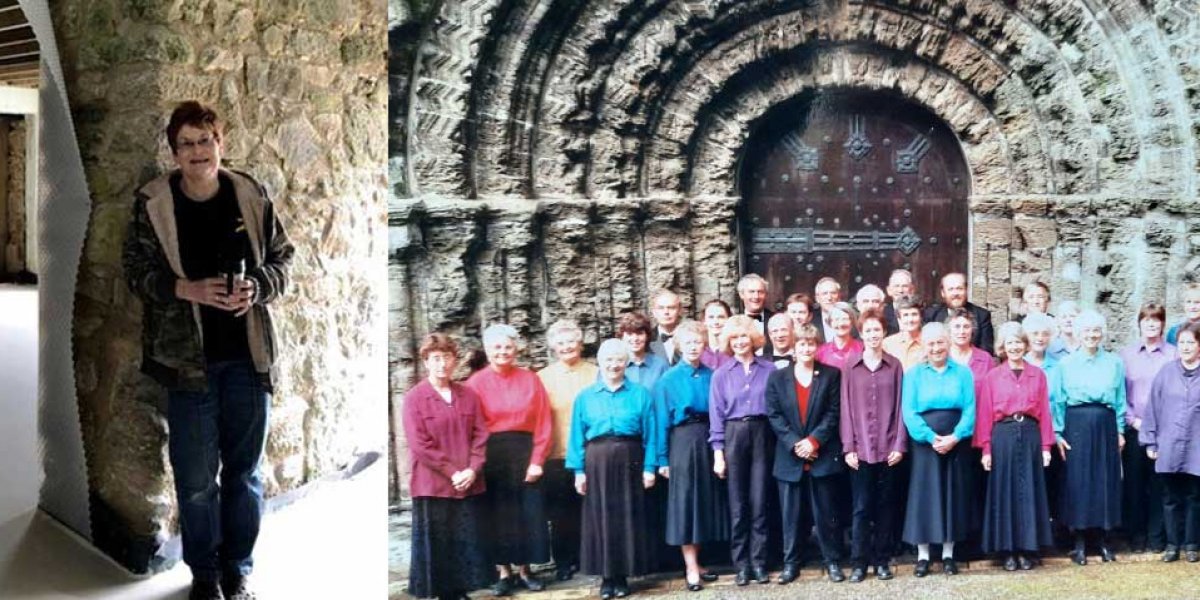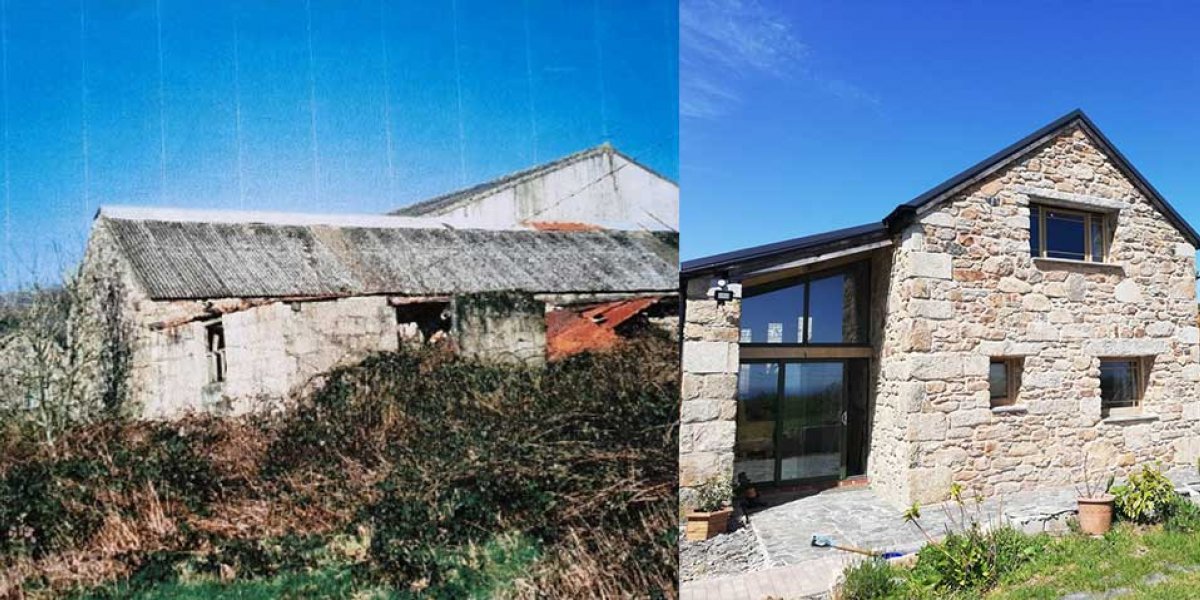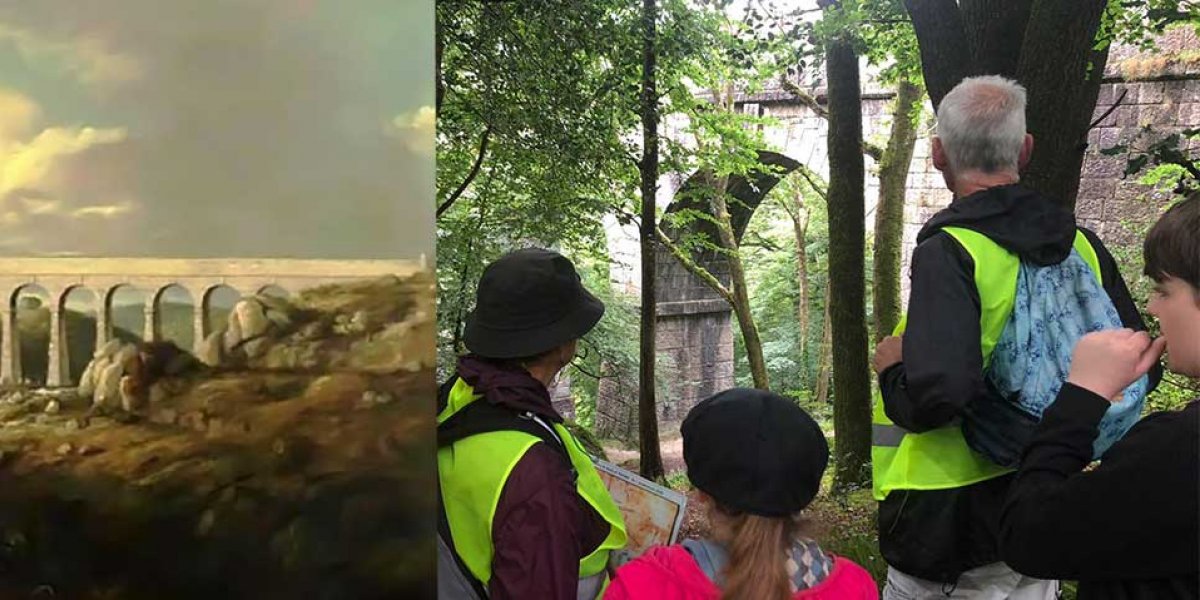A new kind of education – Caroline Stephenson
Before Caroline Stephenson (Newnham 1972) set up the Meadow Barns educational centre for sustainability in Cornwall, she’d already built an eclectic career in music performance and education. Her journey has been one of creativity, curiosity and resilience.
I’m always asking myself: how are you going to make a difference?
Caroline Stephenson
Ever since her mother went out to buy a fridge and came back with a grand piano, Caroline Stephenson (Newnham 1972) has been obsessed with music. In her early years she played piano and oboe non-stop, finding kindred spirits at Cornwall’s music festivals.
In places like St Endellion and St Columb, where Caroline could crash on the floor of a friend’s farm shed, she met people who came from far and wide to experience the festivals. Caroline’s first contact with Cambridge came during these summer holidays, when students from the University would travel down to Cornwall.
“I met Cambridge students and dons at the festivals, who told me that if I wanted to do music at university, then Cambridge was the place to be,” Caroline says.
Overture
After music scholarships and grants enabled her to attend a nearby college, Caroline eventually applied for Cambridge and was accepted to study music at Newnham. She initially found her experience at Cambridge very challenging, feeling like her fellow students were from a different world – one far away from the Cornwall farm on which she grew up. But by the end of her time at the University, Caroline was organising and conducting concerts at a church in the city. She was probably among the first women to arrange and direct such an event, in a field which included future world-famous conductors like Richard Hickox and John Eliot Gardiner.
“To be able to conduct a concert in the town, I must have built up some resilience,” Caroline says.
She also found joining the University Chamber Choir to be an invigorating experience.
“I didn’t expect to be in a choir, but they discovered I had a voice. We ended up touring Germany, Norway, North America... We sang Bach’s St Matthew’s Passion at the Aldeburgh Festival. Those were such amazing experiences. With the choir, I found a group of friends I could fit in with.”
Caroline moved out of Newnham after her first year to live with a friend, in what happened to be the house of Sir David Willcocks – the conductor of King’s College Choir at the time. “That situation was much better for me. I fitted in and felt comfortable around my fellow musicians.”
Once she’d settled into University life, Caroline volunteered at Fulbourn Hospital, to observe and assist with music therapy sessions for patients. “It was a long cycle ride into the countryside, but completely worth it. That experience played a key part in finding out who I was.”
Eventually, Caroline qualified as a teacher and used her musical knowledge in a wide range of teaching. For ten years she was also musical director of East Cornwall Bach Festival, where she became renowned for her adventurous programming of chamber choir and orchestral concerts at St Germans Church.
Caroline then devoted herself to producing music-focused educational resources for schools, applying music and rhythm to maths and literacy learning. Many of Caroline’s resources are still freely available on her website. For 20 years, Caroline tried to get schools more involved with musical education, but a combination of austerity and educational reforms meant that the take-up was limited. “I found it terribly sad, because I know the value of this sort of education.”
A new kind of education
In 2017, Caroline retired from music teaching and took on a ‘grand design’ project in Cornwall – transforming a barn into a family home. It was a full-on job, transforming chicken sheds and farmland into a place to live. While researching her new home Caroline started to wonder how eco-friendly she could make the site. What started as curiosity turned into a bit of an obsession.
“I’ve now got 34 solar panels across the whole site. The power feeds into hot water tanks in two barns, as well as an electric AGA, which holds the heat really well.’’
Moving into her eco-home in 2019, Caroline soon found teething problems – she had to drill into the basement and put in a biomass boiler, after the solar-heated water didn’t work too well in the winter months. But the benefits of designing and building her home according to renewable energy principles soon became apparent.
Caroline’s home now sits at the centre of a new, even bigger redesign project: the Meadow Barns educational centre.
“I use my home to educate young people about green energy. We’ve got at least four kinds of energy on display on this site: solar, biomass, hydro/water storage and geothermal.”
The Meadow Barns centre provides a way for schoolchildren and their families to learn about sustainability. Caroline shows the school groups around her green home and the wider landscape, explaining the trials and tribulations of trying to live sustainably. There is camping space for residential trips and guided tours around Luxulyan Valley, a nearby World Heritage site.
“This part of Cornwall is famous for its mining: about 200 years ago, it hosted the biggest copper mines in the world.”
The past and future of renewable energy
In a serendipitous turn of history, the man who created the mine appears to be a long-forgotten sustainable energy innovator: Joseph Treffry.
“In the late 1820s, Treffry refused to import coal from South Wales for steam power. He pioneered the use of local, decentralised energy sources – building a complex hydro-energy system featuring water wheels, and an enormous viaduct to harness the power of water. By 1837, he drove 17 wheels on his mining site using this cleaner form of energy.”
Treffry’s impressive projects are brought to life at the Meadow Barns centre, where visitors can see how these processes have shaped the landscape, and even explore how to build a viaduct. “They get to play with the wheels and understand how the system works. There’s so much we can learn from early energy pioneers like Treffry: it feels like we’re continuing his mission in the local management of energy.”
Another stop on the Meadow Barns tour is a geothermal monitor, installed by the Eden Project, who have a site nearby. Caroline partnered with Eden Geothermal to help them assess the viability of powering their site on geothermal energy, or ‘hot rocks’. Installing the geothermal apparatus involves drilling nearly three miles (4.5km) down into the granite depths beneath Cornwall soil, to harness the heat stored in the rock layers.
“They put cold water down one side of the shaft and run it back up the other side: on the way out, it comes out scorching hot! Eventually, the Eden Project hope to heat their whole site, biomes and everything, using this technology.”
The monitor on Caroline’s site comes with its own set of solar panels and sends data to the Eden Project, giving them valuable information on their ongoing energy transition. If it works well, they hope geothermal energy may be rolled out to heat houses in the surrounding area.
The Green Fridays Blog
But Caroline’s curiosity didn’t stop there. When she saw a film celebrating the sustainable work happening in her region commissioned for the G7 summit in Cornwall, it rankled her. Caroline questioned whether enough efforts were already being made and sought further evidence to back up the film’s claims.
“I thought, do you know what – I'm going to write about this.”
Through her weekly Green Fridays Blog, Caroline seeks to hold people who extol their own ‘green’ credentials to account – investigating the evidence behind their claims, and exploring what the latest science is telling us about sustainability.
“I have an urge to make people back up their claims. I want to ask: what is the source? How is it being done? Where is the evidence?”
In time, perhaps Caroline’s work on the blog will come full circle to her work in education – she plans to turn the information into freely available resources for schools. Whatever the future holds, the resilience Caroline has built up over the years is sure to come in useful once more.
“I’ve had to grasp some really complex stuff. But I’m always asking myself: how are you going to make a difference? If music education in schools is out of favour, I have to find other ways of doing that in the meantime. Right now, the world needs people to get their heads around the renewable energy transition. And that’s what I’m trying to achieve through this work.”




